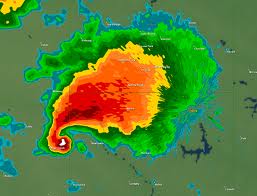Anyone else notice how weather forecasting (and related types of science)has taken a decisively edgier tone over the years. Hardly a season goes by anymore without some new “scarier” term being used to describe weather-related events. Some were invented (Super Storm), while others may have been dusted off and brought out o the archives. The same can be said about events such as forest fires, earthquakes, or tsunamis (I remember when we just called them tidal waves).
No one is saying that many of these phenomenon are not dangerous or caution shouldn’t be taken lightly, but it seems that viewership and ratings are driving some of this…got to fill that 24-hour news cycle, ya know.
Here are a few I thought of, but I am sure there are many more (ones shown in bold are actual formal weather terms identified by NOAA for weather; the USGS for earthquakes, volcanoes, and tsunamis; and/or the US Forest Service for forest fires). Please feel free to send along others you may have heard in the recent years. Thanks!
- Landspout (just heard this one for the first time a couple of weeks ago – still not quite sure what the difference is between it and a small tornado)
- Riptide (used to be undertow)
- Super storm (Can’t you just say Hurricane Sandy?)
- The actual naming of winter storms (to keep the hurricane hype going into winter, I guess?)
- The rating of a tornado’s strength from F0-F5 (who cares, just get out-of-the-way!)
- Alberta Clipper (fast-moving winter storm from Western Canada)
- Saskatchewan Screamer (similar to an Alberta Clipper)
- Hook-echo (possible tornado forming as seen by Doppler radar)
- Derecho(e) (long, straight-line windstorm – heard this term for the first time a few weeks ago)
- Wildfire (used to be forest fires – anyone remember Smokey the Bear?)
- Bomb (lava fragments being ejected by the volcano)
- Fire storm
- Ground failure (what happened to landslides?)
- Rupture front (ouch!)
- Compression wave (I doubt they are talking about a small wave hello).



I think some of the terms shouldn’t have been included in the list. I’ll scroll back and forth to make some specific comments. I agree a lot of this is media hype.
1. Landspout – I’d have to look it up. You can too.
2. Riptide, undertow – use them both as you wish.
3. Superstorm Sandy, et al. – weatherpeople did observe the unusual combination of several storms, making this event more than a simple hurricane.
4. naming winter storms – execrable hype!
5. rating of a tornado’s strength: first there was the F Scale. Now, since 2007, we have the EF Scale, and there’s no hyphen between the EF and the number. Learn to love it, and learn the “Cliff’s Notes” version of damage indicators so you can try to guess the EF number quickly. What’s hype is media reporting estimated wind speed but not the EF number. We don’t have too many choices in tornado-resistant construction. If I’m going to tell you how resistant a certain construction type is to tornadoes, I’m going to refer to EF numbers, not wind speed. Yes, I’m laying down the law for you.
6. derecho was first used before any of us were born. Learn it. It’s not hype. Derechos kill.
7. wildfire versus urban fire.
8. I think “ground failure”, which I haven’t looked up yet, might be applied more to earthquakes. Landslides are one kind of “mass movement,” which happens a lot with no earthquake, but of course can be caused by quakes.
9. Lava bombs have been described for many decades, and no one who’s been hit by one would call it hype, if he’s still able to call it anything.
10. Tsunami/tidal wave is interesting because these can have causes other than earthquakes. Tsunami translates to “harbor wave” which makes some sense for the height buildup. But tidal wave is incorrect because tsunamis have nothing to do with tides.
LikeLike